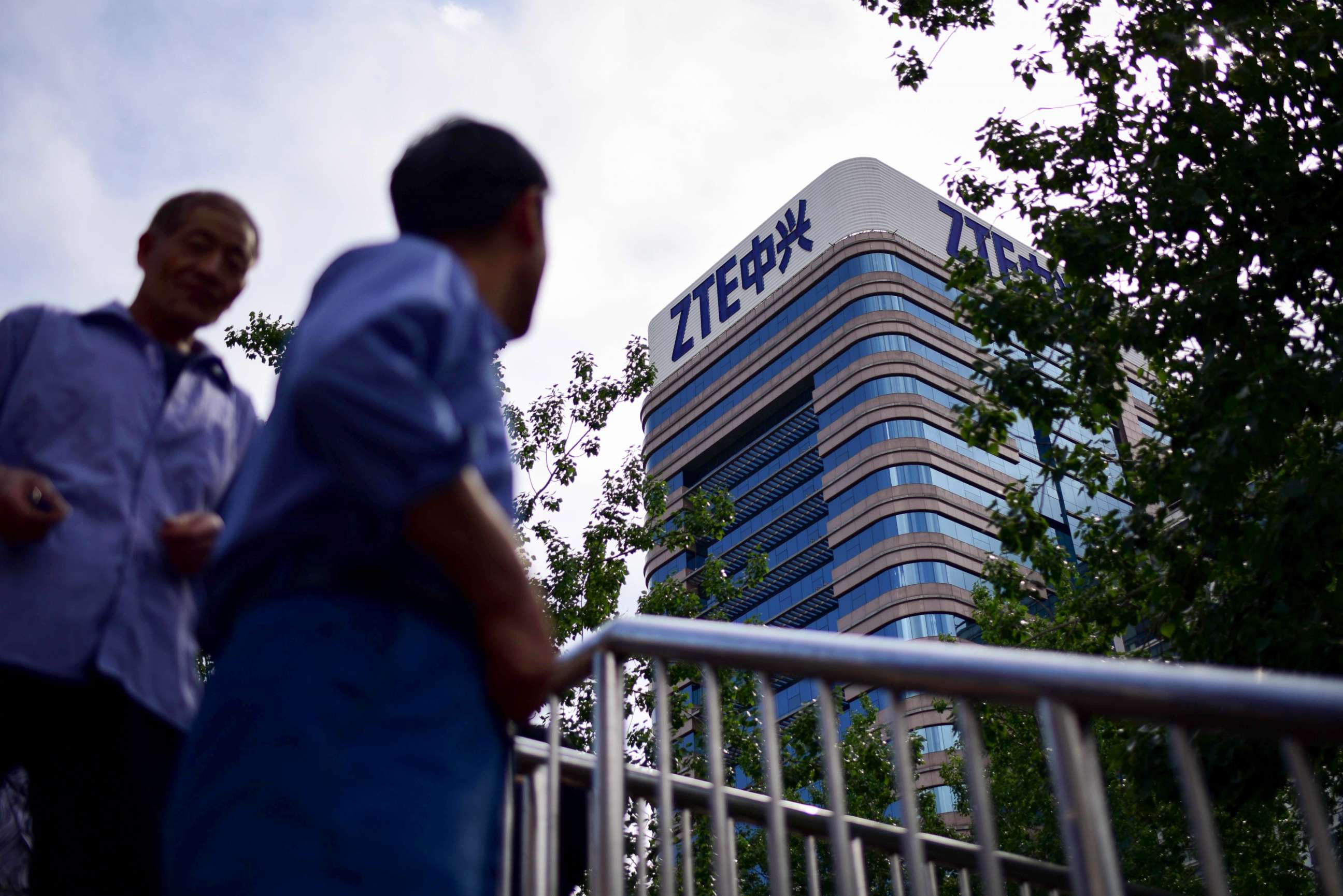Congress gearing up to deliver stinging rebuke to Trump over trade talks with China
The administration has defended its ZTE deal as tougher than the original.
As President Donald Trump in Singapore flexed his diplomatic muscles with North Korea, members of his own party back in Washington were gearing up to deliver a stinging rebuke over his efforts to normalize trade with China.
Senate Republicans returning to work Monday were also disheartened by the president's bellicose language toward Canada over the weekend, but their efforts to check his ability to impose the sorts of tariffs that started the tit-for-tat seem likely to fail in the near term.
The lead negotiators on the annual defense policy bill added a measure that would essentially reverse the administration’s softening of penalties on ZTE, a Chinese telecom company that the Pentagon and U.S. intelligence community have singled out as a national security threat because it could be using its devices to spy on Americans. Final passage of the bill is likely to come this week.
John Cohen, a former acting undersecretary for intelligence at DHS, said ZTE represents a major challenge for US counter intelligence authorities.
"China's intelligence agencies regularly embed eavesdropping and other collection tools in technologies sold by Chinese tech firms. China's intelligence services also collaborate with these Chinese tech firms to achieve other intelligence objectives. Allowing ZTE to resume operation will likely cause great concern amongst those intelligence professionals responsible for protecting our national security," Cohen, an ABC contributor, said.

The amendment, co-sponsored by Sens. Tom Cotton, R-Ark., Marco Rubio, R-Fla., Chuck Schumer D-N.Y., and Chris Van Hollen, D-Md., prohibits the entire U.S. government from purchasing or leasing equipment from ZTE and a similar telecom also cited for national security risks, Huawei.
It would also restore penalties on ZTE imposed in March 2017 after the company was caught selling equipment to Iran and making false statements assuring it had disciplined executives. The punishments included a fine and a seven-year ban on ZTE’s ability to purchase U.S. parts.
Commerce Secretary Wilbur Ross announced last week that the administration had reached a “definitive agreement” with ZTE that he said represented “the most strict compliance that we’ve ever had on any company, American or foreign.”
That deal included a billion-dollar fine and ZTE’s agreement to install a new, American-picked compliance board. But ZTE had already agreed to a $1.2-billion dollar fine in the 2017 penalty package.
In a statement released when the bipartisan group introduced its bill last week, Rubio indicated their measure – essentially reinstating the original penalties, plus additional restrictions on U.S. purchases – was much tougher than what the White House had negotiated.
“On the same day that the Administration announced it had reached a ‘deal’ with ZTE, my colleagues advanced this important measure and I encourage Congress to remain clear-eyed and unified on the threat China poses to U.S. interests and national security,” Rubio said.
While the White House has yet to weigh in on this latest development, Trump tweeted late last month that the deal with ZTE was more than what his Democratic predecessors had accomplished.
Asked whether he thought Trump would veto the entire National Defense Authorization Act defense policy bill, to which the ZTE amendment has been attached, Van Hollen said that would represent a massive concession to China.
“Veto the bill in order to protect ZTE and Chinese jobs? I don’t think so,” he told reporters.
Senate Republicans were also upset that the administration had publicly, and in many of their minds, unnecessarily, rebuked Canada during the weekend’s G7 meeting by refusing to endorse a joint statement and accusing Prime Minister Justin Trudeau of negotiating in bad faith. While Canada had already previously announced retaliatory steel and aluminum tariffs on the U.S., it seemed to be Trudeau’s comments at a press conference, in which he said Canada would not be “pushed around” – that upset the president and his advisors.
“There's a special place in hell for any foreign leader that engages in bad faith diplomacy with President Donald J. Trump and then tries to stab him in the back on the way out the door," trade advisor Peter Navarro said on "Fox News Sunday."
Republicans largely cried foul at the use of heated language at the United States’ ally and neighbor.
“It’s uncalled for. Just absolutely uncalled for,” Sen. Cory Gardner, R-Colo., said.
“I’m pretty sure that circles of hell are not reserved for Canadians proposing retaliatory tariffs,” Sen. Ted Cruz, R-Texas, said.
But they don't seem likely to do anything more than wring their hands over the substance behind those comments, at least at the moment. Sens. Bob Corker, R-Tenn., and Pat Toomey, R-Pa., are working on a bill that would check the president’s ability to impose tariffs on the basis of national security concerns, as he did in the Canada case, without congressional approval.
But while the pair has been trying to add the measure to the NDAA, it appeared Monday as if it would be ineligible because of procedural hurdles related to its economic impact. Any measures having to do with funding would have to originate in the House of Representatives, which has already voted on its version of the NDAA.
Some Senate Republicans also have concerns that the bill would violate the president’s constitutional authority as head of the executive branch, meaning it likely wouldn’t sail through as easily as the ZTE amendment is expected to.
Sen. John Thune, R-S.D., noted that some Republicans are opting to give the administration space to negotiate with Canada and other partners in the near term, and that would be best not to try to rein in the president’s authority at the same time.
“There’s clearly a concern with a lot of sort of free trade conservatives in our conference about the present track that we’re on and where it could end up going. But I think at the moment everybody is giving the president the benefit of the doubt,” Thune said.



